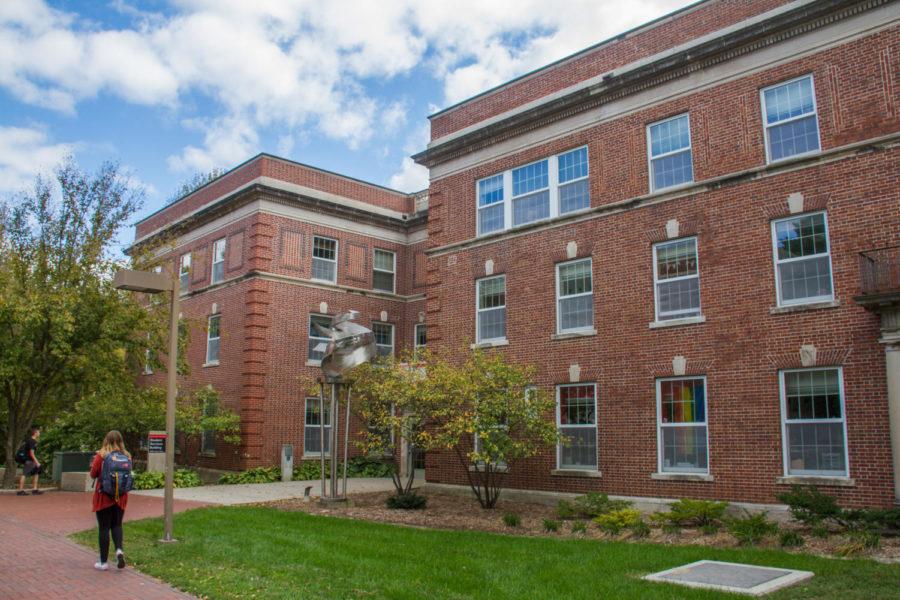Alliance for Disability Awareness circulates petition for return of vocational rehab
The Office for Student Disability Resources and the Alliance for Disability Awareness, both housed in the Student Services Building hope to move the Iowa Vocational Rehabilitation Services back to campus.
January 22, 2017
The Alliance for Disability Awareness (ADA) at Iowa State has circulated a petition in an effort to return vocation rehabilitation back to Iowa State.
Iowa Vocational Rehabilitation Services (IVRS) has provided the rehabilitation to individuals with disabilities as part of a partnership between the organization and the university since 1987.
“We’re hoping to have [IVRS] back on campus so that it’s accessible for students who have disabilities,” Laura Wiederholt, president of Alliance for Disability Awareness, said. “Our hope is to bring them back to campus, or as close to campus as possible.”
IVRS works with individuals with disabilities to help them achieve employment and economic independence. Wiederholt, who also is a member of the diversity committee for Iowa State’s Student Government, said IVRS provides assistance with tuition, technological accessibility assistance and assistance with mobility.
Since the fall of 1987, IVRS has had an office on campus where its staff provides services to students. In response to the growth of enrollment at Iowa State, the student disability resources office at Iowa State hired additional staff in the fall of 2016. There was not enough office space for IVRS and the additional staff. As a result, IVRS relocated to its main office in north Ames in November 2016.
“[IVRS] provided one-on-one services that ISU can’t,” Wendy Stevenson, adviser for the ADA and disabilities coordinator for the Office for Student Disability Resources, said.
Despite the relocation of vocation rehab, the for student disability resources has arranged for IVRS to provide services on Mondays and Thursdays, 12 hours per week, in a conference room in the campus’ Laboratory of Mechanics building.
“[IVRS] has helped us a lot, but even if there’s full support for the petition, the office space still needs to be found.”
Wiederholt added that students who seek vocational rehabilitation are struggling to get it due to the move, often having to choose between attending their rehabilitation appointment or class.
“Some students, especially those with chronic fatigue, don’t have the energy to do both,” Wiederholt said. “It’s not a decision I want them to have to make.”
Keith Robinder, interim dean of students, said the decision to move vocational rehab was not made lightly. Student Services collaborated with the Office of Student Affairs, IVRS and other offices to develop the best alternative.
“Over the years, the Student Services staff has doubled,” Robinder said. “We looked at so many creative options as to where we might keep or move an office. Ultimately, [IVRS] determined the space they had in north Ames was the best option for them.”
Robinder said the current arrangement will remain for the rest of the semester.
“We’re going to continue to figure out how to make it work,” Robinder said. “Getting back to vocational rehab having dedicated offices [on campus] is the ideal solution.”







